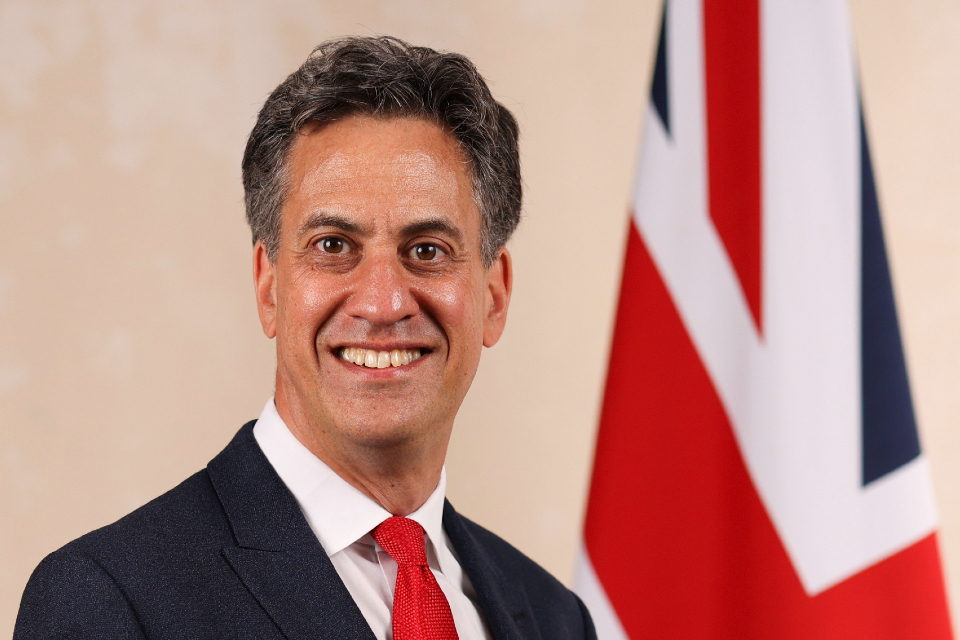Obsidian Memo]🌍 That’s a wrap — London Climate Action Week.
London Climate Action Week 2025 highlighted the future of impact investing — from Ed Miliband’s climate innovation address and COP30 Brazil prep to carbon removal, sustainable cities in the age of AI, and even wisdom from an Andean shaman on reconnecting with nature.
![Obsidian Memo]🌍 That’s a wrap — London Climate Action Week.](/content/images/size/w1200/2025/09/WhatsApp-Image-2025-09-17-at-09.34.06_c7531519-1.jpg)
“Pessimism is a luxury we cannot afford.”
-Ed Miliband
Hi All,
This past week’s London Climate Action Week helped me feel positive about the future of impact investing.
From Ed Miliband’s address at the London Climate Innovation Forum to COP30 agenda prep for Brazil, deep dives into carbon removal, impact investing, and sacred conversations with an Andean shaman on how to reconnect with nature… to future cities and architecture in the age of AI, and evenings spent in dialogue with brilliant minds at The Conduit — it’s been a full, expansive week.
I would love to hear from you as well. What was your experience like?















🎉 My key personal takeaway from the whole week?
For the first time, Nature took center stage — not as a backdrop, but as a protagonist.
We heard calls for giving the Amazon a representative voice — and I left with hope that we’re finally stepping into an era where AI and satellite analytics can help make the invisible visible, enabling us to price and protect nature with nuance and integrity.
As a practitioner, it felt like a true luxury and privilege to spend full days immersed in these sessions instead of dipping in and out of conferences.
In over a decade of working in sustainable finance, I’ve rarely had the space to attend climate summits fully (as an investor, you can’t leave your desk that long) — and I left wishing more investors and asset allocators could do the same.
Sustainable investing is evolving — not just as a compliance checkbox, but as a conviction-led choice to place climate and nature at the heart of investment frameworks.
I cannot wait for all stakeholders to come together to deliver on our shared mandate: to make sustainability the most intelligent capital decision of our time.
London Climate Action Week: Ed Miliband’s Message for Investors

This year’s Climate Innovation Forum, the flagship of London Climate Action Week, brought together governments, businesses, investors, and civil society. In his keynote, UK Energy Secretary Ed Miliband framed climate action as both an economic necessity and a generational opportunity.
Three core messages stood out:
- The UK must accelerate climate action — not only for future generations, but to strengthen today’s economy.
- Climate risk is also a growth opportunity — from clean energy to sustainable finance, innovation can drive competitiveness.
- Global coalitions matter — policy, finance, and civil society must align ahead of COP30 in Brazil.
Policy commitments relevant to investors include:
- Clean energy build-out: nuclear (Sizewell C, SMRs), hydrogen networks, and carbon capture hubs in Scotland, Humberside, Teesside, and NW England.
- A publicly owned Great British Energy to accelerate supply chains and infrastructure.
- Energy efficiency retrofits and nature restoration, including a national “warm homes” programme, tree planting, and peatland recovery.
- Sustainable finance regulation: mandatory 1.5°C-aligned transition plans for large companies and financial institutions — now under consultation.
The framing was pragmatic: climate policy is not a cost burden but a route to energy security, job creation, lower bills, and economic resilience.
As Miliband put it:
“Pessimism is a luxury we cannot afford.”
For institutional investors, the signal is clear. Climate-aligned regulation will accelerate. Capital flows are expected to pivot toward clean energy infrastructure, nature-based solutions, and companies demonstrating credible transition pathways. The investment case is not just ESG — it’s about securing exposure to the next wave of growth and resilience.
📌 Investor Implications
- Policy Certainty Rising: The UK is positioning itself as a clean energy leader by 2030, with major public investment and regulatory signals — reducing policy risk in sectors like nuclear, hydrogen, and carbon capture.
- Growth Sectors: Expect outsized opportunities in clean energy infrastructure, energy efficiency, and nature-based solutions, alongside firms offering credible transition plans.
- Regulatory Momentum: Mandatory 1.5°C-aligned transition plans for corporates and financial institutions are in consultation. Early movers will be rewarded; laggards face transition and reputational risk.
- Capital Flows Shifting: As public policy crowds in private finance, institutional capital will be critical to scale projects. Returns will increasingly be tied to climate alignment, not just traditional benchmarks.

![Obsidian Memo] Leadership Ground Truth: What Cuba, Puerto Rico, and Hawai'i Taught Me About Capital and Resilience](/content/images/size/w720/2026/02/Bad-Bunny.jpg)
![Obsidian Memo] The Great Re-Entry: Strategic Realignment and the Industrialization of Private Capital in the 2026 Financial Services Landscape](/content/images/size/w720/2026/02/photo-1496989981497-27d69cdad83e.jpeg)
![Obsidian Memo] Nature Finance & Circular Economy in Practice: A Sustainable Investing Perspective](https://images.unsplash.com/photo-1571785983781-3317703d64a6?crop=entropy&cs=tinysrgb&fit=max&fm=jpg&ixid=M3wxMTc3M3wwfDF8c2VhcmNofDEyfHxiaW9kaXZlcnNpdHl8ZW58MHx8fHwxNzcwOTU2NzQ3fDA&ixlib=rb-4.1.0&q=80&w=720)
Comments ()